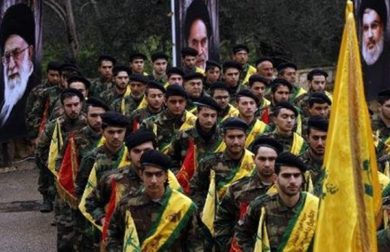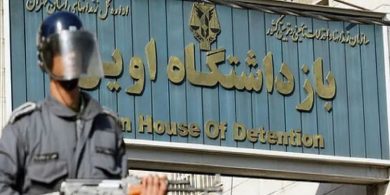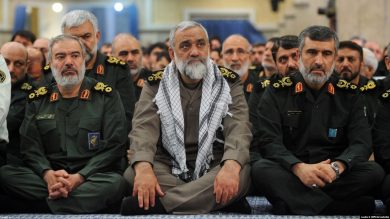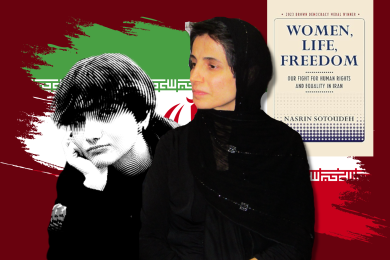In the heart of Tehran, surrounded by silence and fear, lies one of the most infamous prisons in the world: Evin Prison. For decades, this facility has served as a central hub for the Islamic Republic of Iran’s political repression, especially targeting women activists, journalists, students, and human rights defenders. The name Evin evokes stories of injustice, isolation, and unimaginable resilience.
This article brings to light the experiences of women political prisoners inside Evin, their treatment at the hands of the Islamic Revolutionary Guard Corps (IRGC), and the ways their voices endure and inspire resistance across Iran and the world.
1. Evin Prison: A Tool of State Control
Built during the reign of the Shah and repurposed by the Islamic Republic after the 1979 revolution, Evin Prison is controlled by IRGC Intelligence and Judiciary agents. It has become a symbol of state terror, a place where peaceful dissent is criminalized and where female prisoners are subjected to:
• Arbitrary arrests
• Incommunicado detention
• Psychological and physical torture
• Denial of legal rights
• Coerced confessions
Evin is not just a prison; it is a political mechanism designed to instill fear and silence activism, especially among women challenging the regime’s authority.
2. Why Women Are Targeted
Women are among the most visible and vocal leaders of Iran’s pro-democracy movement. From resisting the compulsory hijab to organizing labor protests or reporting on human rights abuses, women have long stood at the forefront of civil resistance.
This makes them prime targets for the IRGC, which views independent female voices as threats to its control over both politics and public morality.
Many women are arrested for:
• Removing their hijab in public
• Participating in protests
• Publishing content online
• Engaging with foreign media or NGOs
• Advocating for basic rights
3. Life Inside Evin: Stories from the Cells
A .Narges Mohammadi – The Nobel Laureate of Resistance
A journalist, human rights activist, and Nobel Peace Prize winner, Narges Mohammadi has spent years in Evin Prison. She has been arrested multiple times for:
• Speaking against the death penalty
• Organizing against solitary confinement
• Promoting women’s rights
Despite enduring isolation, torture, and the denial of medical care, she has written letters from her cell, exposing the prison’s brutality and calling on the world to act.
Her words:
“We are not victims. We are witnesses and fighters. Even from behind bars, we resist.”
B. Sepideh Gholian – Voice of the Working Class
Sepideh, a labor rights activist, was arrested for documenting a peaceful protest. Inside Evin, she endured:
• Beatings
• Forced confessions
• Threats against her family
Upon release, she walked out chanting anti-regime slogans — a powerful image that went viral worldwide — only to be re-arrested days later.
She wrote:
“They tried to silence me with chains. But my voice is louder than their fear.”
C. Nasrin Sotoudeh – The Defiant Defender
A leading human rights lawyer, Nasrin has been repeatedly arrested for:
• Defending women who removed their hijabs
• Criticizing Iran’s legal system
• Protesting unfair trials
Her latest sentence totaled 38 years in prison and 148 lashes. Even behind bars, she continues to write, organize, and inspire.
4. The Conditions Inside: A Human Rights Nightmare
Evin’s Ward 209, run by the IRGC, is where many political prisoners are held. Inside, women endure:
• Solitary confinement for weeks or months
• Interrogations under sleep deprivation
• Denial of medical treatment for serious conditions
• No access to lawyers during questioning
• Verbal and sexual abuse
• Cameras in bathrooms and showers to violate privacy
Basic rights, such as access to books, family calls, or outdoor time, are routinely denied — especially for prisoners who refuse to stay silent.
5. Women Supporting Women: Sisterhood in Resistance
Despite the horrors, solidarity thrives inside Evin. Women political prisoners:
• Share food, books, and messages
• Provide emotional support during interrogations
• Write letters to the outside world
This sisterhood becomes a lifeline — a quiet rebellion in a place meant to crush the spirit.
6. The IRGC’s Role: Fear as Policy
The Islamic Revolutionary Guard Corps is deeply embedded in Evin’s operation. They are not just jailers — they are:
• Interrogators
• Surveillance agents
• Censors of letters and communication
• Enforcers of forced confessions aired on state media
Their goal is not just to punish but to break public symbols of resistance and to deter future activism, especially among women.
7. Why the World Must Listen
Evin is not hidden anymore. The voices of the women imprisoned there have reached beyond Iran’s borders. Their testimonies are:
• Filed with the UN Human Rights Council
• Published in major newspapers
• Echoed in global protests and parliaments
Ignoring these stories gives the regime impunity. Supporting them challenges repression and promotes the universal right to freedom of speech, assembly, and dignity.
8. Global Action: What Can Be Done
1. International Pressure
Governments and NGOs must:
• Demand the release of political prisoners
• Sanction IRGC officials responsible for torture
• Provide platforms for exiled Iranian voices
2. Media Amplification
Journalists, bloggers, and influencers should:
• Share prisoner stories
• Highlight IRGC abuse
• Use hashtags like #FreeIranianWomen and #WomenLifeFreedom
3. Legal Accountability
• Pursue IRGC members for human rights crimes in international courts
• Support efforts to designate the IRGC as a terrorist organization globally
9. Evin Is Everywhere
While Evin is a physical prison, its repressive model is repeated across the country — in places like Qarchak, Sanandaj, and Mashhad. And yet, women continue to rise, resist, and reclaim their voices.
Conclusion: Voices That Cannot Be Silenced
Evin was built to break people. But the women inside it are breaking silence, shaping global awareness, and leading a revolution from behind bars.
Each testimony, each smuggled letter, each whispered story — is a blow against tyranny.
Join Our Newsletter!
Stay informed with the latest updates, news, and ways to take action in the fight for justice and global security. Sign up now to get updates delivered straight to your inbox!





